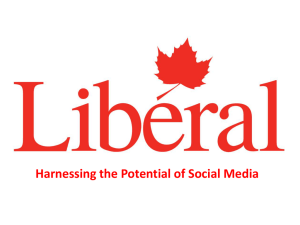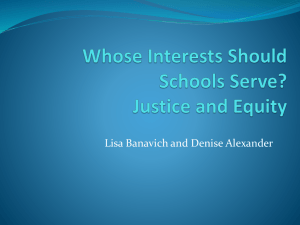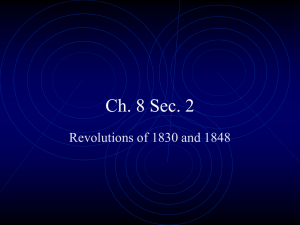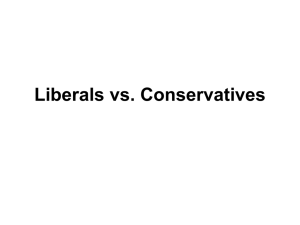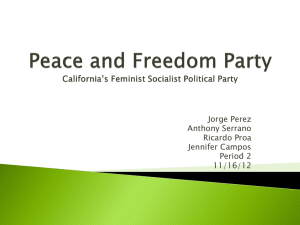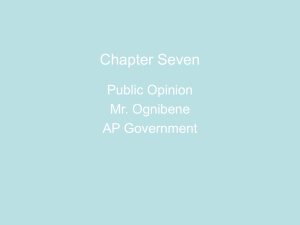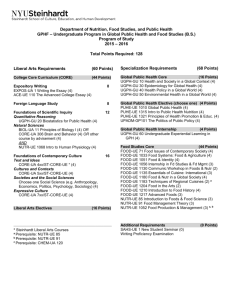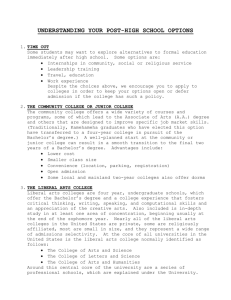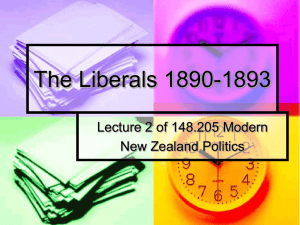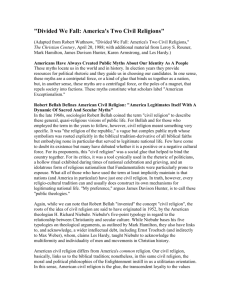An Alliance with Liberal Religion?
advertisement
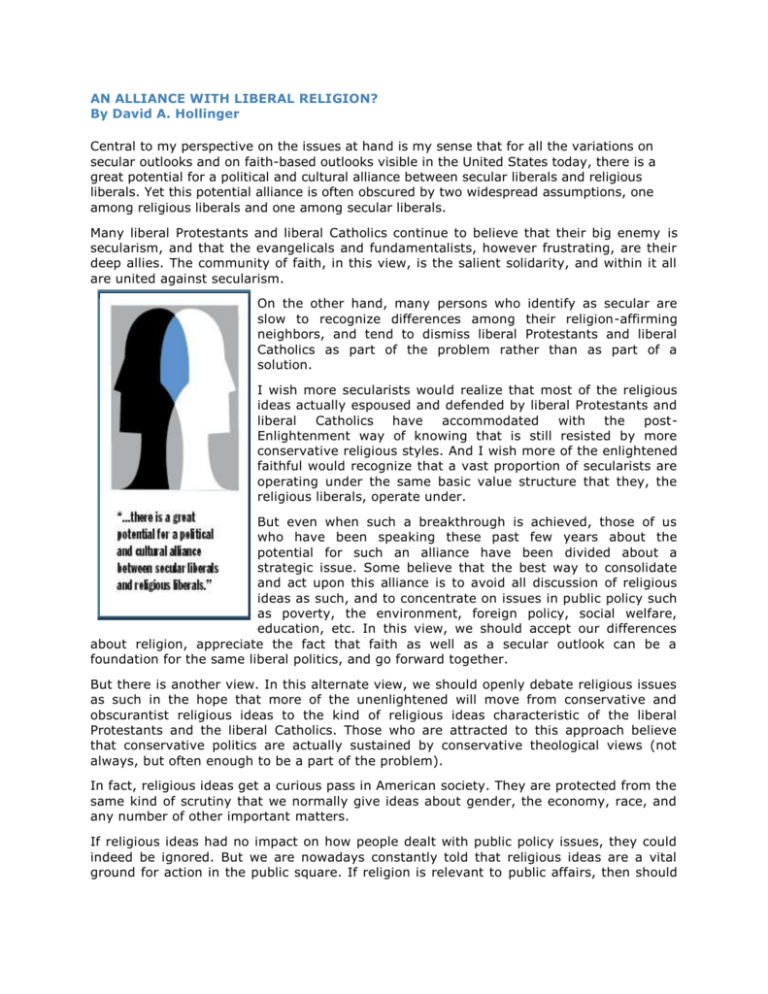
AN ALLIANCE WITH LIBERAL RELIGION? By David A. Hollinger Central to my perspective on the issues at hand is my sense that for all the variations on secular outlooks and on faith-based outlooks visible in the United States today, there is a great potential for a political and cultural alliance between secular liberals and religious liberals. Yet this potential alliance is often obscured by two widespread assumptions, one among religious liberals and one among secular liberals. Many liberal Protestants and liberal Catholics continue to believe that their big enemy is secularism, and that the evangelicals and fundamentalists, however frustrating, are their deep allies. The community of faith, in this view, is the salient solidarity, and within it all are united against secularism. On the other hand, many persons who identify as secular are slow to recognize differences among their religion-affirming neighbors, and tend to dismiss liberal Protestants and liberal Catholics as part of the problem rather than as part of a solution. I wish more secularists would realize that most of the religious ideas actually espoused and defended by liberal Protestants and liberal Catholics have accommodated with the postEnlightenment way of knowing that is still resisted by more conservative religious styles. And I wish more of the enlightened faithful would recognize that a vast proportion of secularists are operating under the same basic value structure that they, the religious liberals, operate under. But even when such a breakthrough is achieved, those of us who have been speaking these past few years about the potential for such an alliance have been divided about a strategic issue. Some believe that the best way to consolidate and act upon this alliance is to avoid all discussion of religious ideas as such, and to concentrate on issues in public policy such as poverty, the environment, foreign policy, social welfare, education, etc. In this view, we should accept our differences about religion, appreciate the fact that faith as well as a secular outlook can be a foundation for the same liberal politics, and go forward together. But there is another view. In this alternate view, we should openly debate religious issues as such in the hope that more of the unenlightened will move from conservative and obscurantist religious ideas to the kind of religious ideas characteristic of the liberal Protestants and the liberal Catholics. Those who are attracted to this approach believe that conservative politics are actually sustained by conservative theological views (not always, but often enough to be a part of the problem). In fact, religious ideas get a curious pass in American society. They are protected from the same kind of scrutiny that we normally give ideas about gender, the economy, race, and any number of other important matters. If religious ideas had no impact on how people dealt with public policy issues, they could indeed be ignored. But we are nowadays constantly told that religious ideas are a vital ground for action in the public square. If religion is relevant to public affairs, then should not it be open for the same kind of critical discussion we offer to other kinds of publicly relevant ideas? Interestingly, many who urge more acceptance of religion in the public square want skeptics to keep quiet, and in fact if you actually go after someone’s religious ideas you are quickly accused of anti-religious bias. I find this stance highly problematic. If the faithful are willing to say that we should shut up about their ideas because, after all, they are private, then the faithful should not proclaim the relevance of those ideas to public affairs. As I imply above, I incline toward the second of these strategic directions; that is, I favor a robust, open, critical discussion of such things as the status of the Bible as a source of knowledge, the sorts of warrant we might develop for the idea of the Atonement, etc. Not all religious ideas are equally obscurantist. Many of the ideas of liberal Protestants and liberal Catholics can stand up to the same canons of evidence and reasoning that secularists use in their daily lives. An open discussion of religious ideas might reveal that religious liberals have a lot more in common with many secularists than they do with the bulk of evangelicals and fundamentalists. We need to remember that 80 percent of Americans declare themselves to be Christians. It is a matter of some importance just what kind of Christian-ity they espouse. All Americans have an interest in this question. Religion is too important to be left in the hands of people who believe in it. David A. Hollinger is department chair and Preston Hotchkiss Professor of History at the University of California at Berkeley. His books include Cosmopol-itanism and Solidarity: Group Affiliation in the United States and Science, Jews and Secular Culture.

